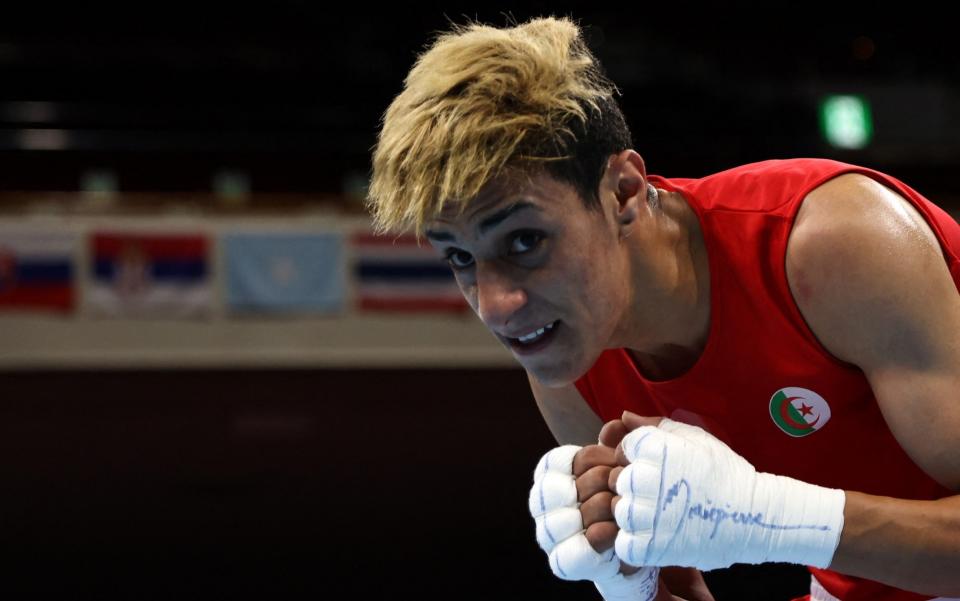Boxer Who Was DQ'd from World Championships Over Gender Testing Will Fight in Olympics
Imane Khelif is set to make headlines at the upcoming Paris Olympics as she competes in the women’s boxing category, despite a controversial disqualification from the previous year’s world championships. This incident has raised significant discussions around gender eligibility in sports, setting the stage for a heated and complex narrative as Khelif prepares to step into the ring against Italy’s Angela Carini.
Background on the Disqualification
The Algerian boxer’s journey to the Olympics has been marred by turmoil and scrutiny following her abrupt disqualification from the 2023 World Championships held in Delhi. Hours before her highly-anticipated gold medal match against China’s Yang Liu, Khelif was informed that her elevated testosterone levels did not meet the International Boxing Association’s (IBA) eligibility criteria. Adding to the controversy, it was stated that she, along with her Taiwanese counterpart Lin Yu-Ting, were found to have XY chromosomes, a revelation that sparked international debates about gender identity in women’s sports.
Despite this setback, the International Olympic Committee (IOC) has deemed Khelif eligible to fight, arguing that both she and Lin possess female passports and have fulfilled the requisite eligibility standards for the Olympics. This stance contrasts sharply with the IBA’s earlier findings, which resulted in Khelif’s disqualification and Lin’s forfeiture of a bronze medal due to “biochemical test concerns related to gender eligibility”.
The Fierce Fight Against Brianda Tamara
The controversy surrounding Khelif is compounded by footage of her past bout with Mexican boxer Brianda Tamara in December 2022. This fight, which took place in Guadalajara, showcased Khelif’s formidable punching power, leading Tamara to express in subsequent interviews that she had never encountered such intensity in her decade-long boxing career, even against male sparring partners, stating, “When I fought her, I felt very out of my depth. Her blows hurt me a lot.” The match was halted in the third round due to Tamara’s inability to continue absorbing the fierce barrage of punches delivered by Khelif, further fueling the discourse regarding her physicality and the broader implications of such performances on gender discussions in sports.
Reactions from the Boxing Community
The boxing community's response to Khelif’s upcoming participation in the Olympics has been one of mixed concern and disbelief. Barry McGuigan, a former world featherweight champion, pronounced it “shocking” that Khelif and others with similar backgrounds have been allowed to compete at such a high level despite prior disqualifications. He questioned the integrity of sporting regulations and the processes that permitted Khelif to move forward, stating, “What is going on?” This sentiment has echoed among numerous stakeholders who are worried about fairness and safety within women’s boxing.
The IOC, facing increased scrutiny and controversy, has yet to provide a comprehensive explanation of its eligibility protocols, which have come under fire as more lenient compared to those enforced by the IBA. Khelif’s case exemplifies the ongoing struggle for clarity and fairness in gender classifications within sports, drawing attention to the broader implications of identity, regulation, and athletic prowess.
The Road to Paris: What Lies Ahead
As Khelif prepares for her first scheduled fight in Paris, the world watches closely—not only for the outcome of her bout but for what it represents in the ongoing dialogue about gender in sports. The intersection of biology, identity, and competition is poised to be thrust into the spotlight, providing an opportunity for greater clarity and understanding in the realm of athletic eligibility.
For Khelif, the road to the Olympics is as much about personal redemption and defiance as it is about sport. Following her disqualification, she characterized the events as part of a “conspiracy” against Algeria’s chances in the boxing world, vowing to fight not just for herself but as a testament to the capabilities of athletes from her nation.
As tensions build towards the Olympic Games, the global audience will be keenly aware that beyond the boxing matches lies a complex narrative about fairness, justice, and the evolution of sport in a changing societal landscape. The outcomes of these discussions could very well shape the future of competitive boxing and gender classification for years to come.
